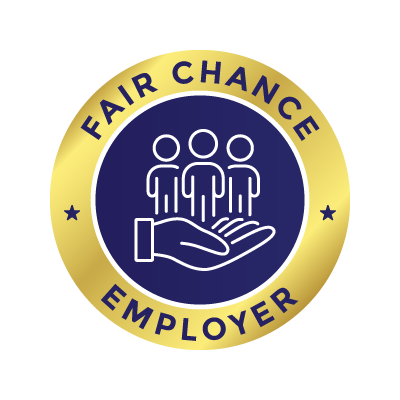In today's competitive job market, companies are constantly seeking new ways to attract and retain top talent. One often overlooked strategy is fair chance hiring – the practice of considering candidates with criminal records for open positions. Not only does this approach tap into a vast pool of skilled workers, but it also promotes diversity and social responsibility.
Let's dive into seven practical tips for implementing a successful fair chance hiring program, along with some eye-opening statistics that highlight its importance.
1. Understand the Risks and Define Your Acceptable Record Types
Fair chance hiring doesn't mean accepting candidates with any type of criminal record. In fact, being transparent with your employees and potential job applicants about what types of backgrounds are acceptable is important factor for success Start by clearly defining which types of offenses align with your company policies and job requirements. This targeted approach ensures you're expanding your talent pool responsibly, that you understand the risks, and keep people safe
2. Implement a Thoughtful and Well-Defined Policy.
In a world where 4 out of 5 employers conduct background checks, it is important to define how a criminal record will factor into the hiring decision. Good policies consider the nature and seriousness of the crime, the time that has passed since the criminal offense was committed, as well as the relationship between the type of crime and the nature of the job.
3. Partner with Community-Based Organizations
Consider partnering with community-based organizations that specialize in connecting employers with qualified candidates who have criminal records Good partners can help filter potential hires based on your specific criteria, saving time and resources in the recruitment process.
4. Offer Record Clearance as an Employee Benefit
Similar to gym memberships, tuition reimbursement programs, and wellness benefits, offering support for record clearance can be a powerful retention tool. This unique benefit demonstrates your commitment to employee growth and can significantly boost loyalty. Studies show that employees with criminal records have 12% lower turnover rates than employees without records.
5. Work Closely with Your HR Team
Ensure your HR team is well-versed in fair chance hiring practices. This includes understanding how to interpret criminal records, conduct fair interviews, and make unbiased assessments. Remember, 85% of HR leaders report that fair chance hires perform as well as or better than other employees.
6. Create a Supportive Onboarding Process
Develop an onboarding process that sets new hires up for success. This might include mentorship programs, skills training, or counseling services. A supportive environment can help these employees thrive and contribute meaningfully to your organization.
7. Communicate Your Initiative
Both internally and externally, communicate your fair chance hiring initiative. This transparency can improve company culture, attract socially conscious talent, and enhance your brand. It's a powerful way to both attract talent and demonstrate your commitment to diversity and inclusion.
8. Measure and Adjust
Regularly assess the impact of your fair chance hiring program. Track metrics like retention rates, job performance, and overall team dynamics. Use this data to refine your approach and showcase the program's success to stakeholders.
Fair chance hiring isn't just a feel-good initiative – it's a smart business strategy. By tapping into this overlooked talent pool and offering support like record clearance assistance, you can attract skilled workers, improve retention rates, and distinguish your company as a leader in corporate social responsibility. Remember, the key to success is a thoughtful, well-implemented program. Start with these eight tips, and you'll be well on your way to creating a more diverse, loyal, and skilled workforce.
Want to Unlock the potential of fair chance hiring?
We are here to help. Fill out the form below and we’ll get in touch with you to discuss your hiring pain points and help your business thrive by implementing fair chance hiring policies.




